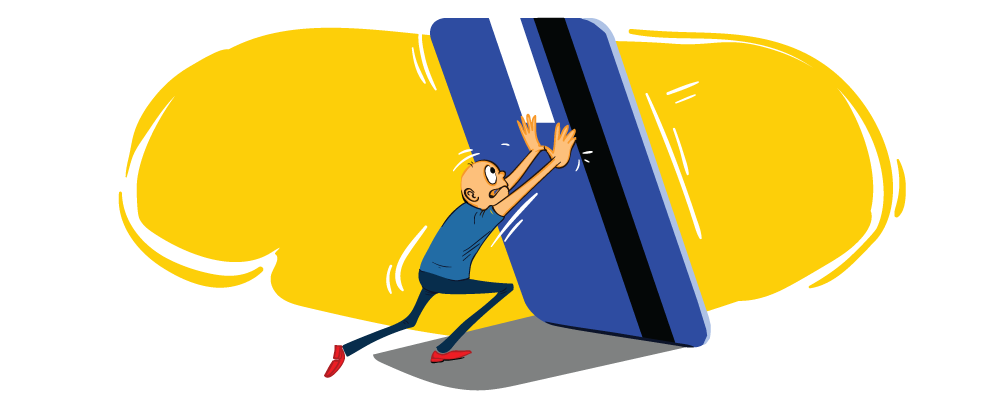
Who doesn’t like to go on a spending spree and seal the deal with one swipe of their Credit Card? The carefree purchases, the unplanned holidays, the unnecessary binges. Oh the joy! That is, until it all comes back to bite you in places we aren’t going to mention, when you fail to pay your Credit Card bill! Just as Uncle Ben said to Spidey, “With great power comes great responsibility”. Remember, with the convenience of a Credit Card, comes great planning and responsibility too. One wrong move and everything can go downhill, if you aren’t careful.
What Happens When you Default?
If you fail to make timely payments on your Credit Card bills, you will have to face consequences which are bound to leave a bitter taste in your mouth.
If you do not pay your Credit Card bills on time:
You will have to pay a late fee: If you delay your Credit Card payment, a late fee is added to your next month’s Credit Card bill. There is no escaping the fine!
You will face an increase in interest rate: If you continue to use your Credit Card, despite not paying your pending bill, there is an increase in interest rate towards your loan EMIs or cash withdrawals.
Your Credit Card limit is reduced: Defaulting on your Credit Card payments mean that the issuer or the bank will go ahead and cut down your spending limit, slowing down the speed as well as your freedom of expenditure.
You will have bad debt with the bank: After a point, if your debt remains unpaid, the bank will close your card account and write off your pending balance as bad debt.
You will have to deal with the collection agency: Banks pass the responsibility of collection of their dues to collection agencies who take up the task of calling and following up on the outstanding payments.
Your credit score will sink: Banks notify CIBIL and your credit score will fall, making it difficult for you to get a loan in the future.
You can get sued: If the bank takes you to court, you’re in trouble. The ruling is usually against the defaulter and either the money is charged from his account or his income is cordoned off until the due amount is paid.
How to Save Yourself from Defaulting on Credit Card Payments?
There are some ways you can avert a Credit Card payment default. Some methods work and some don’t. It all depends on timing.
- You can transfer your balance to the account of another bank and pay through EMIs. The processing fees is economical and the interest on the amount transferred is waived off for a limited time in the beginning.
- You can take a loan to pay off your debts. The loans come at lower interest rates than the interest charged on the Credit Cards. Thereby, helping you create a source to pay off the outstanding due amount.
- You can request the bank to convert the due amount into EMIs, which you can pay over a limited period of time. This not only gives you an extension but also a chance to redeem your relationship with the bank for the future.
- There is always the last option of selling/breaking your other investments, which can be done in a worst-case scenario, which this counts as. The money generated from your fixed deposits, mutual funds or gold loans can help you pay off your outstanding balance with the bank.
All said and done, this isn’t an ideal way to manage your debt and you would be better off paying your bills on time and going to bed in peace.
Additional reading: Responsible Credit Card usage